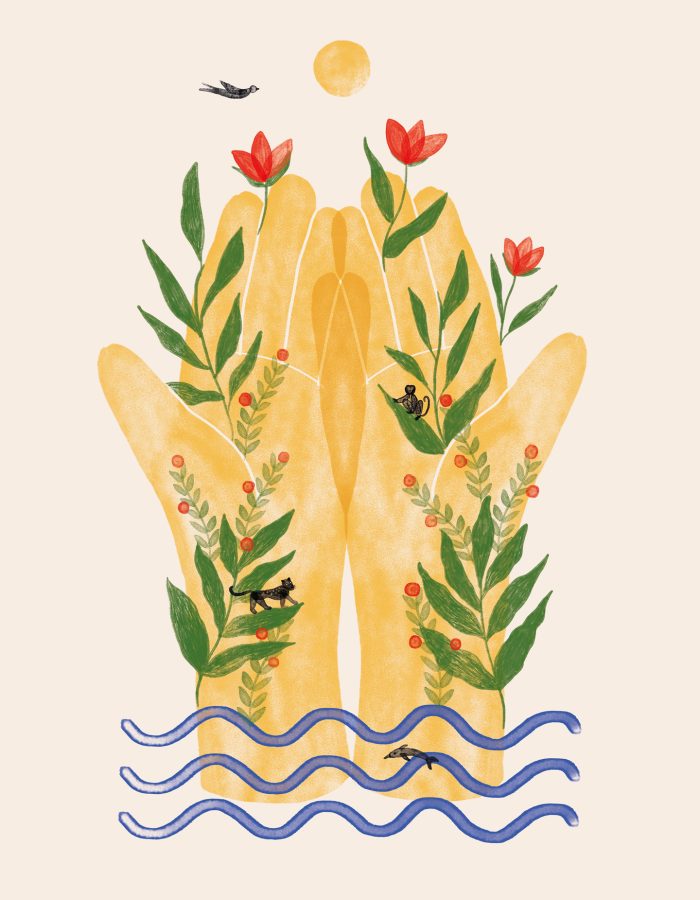3-6 Inquiry Guide
Chapter 5. Indigenous Ways of Knowing
This chapter consists of three guided inquiries that start with a provocation and culminate with ideas to take action.
Contributor Deborah Miller
Reviewed by Daniel Sylvestre
Video guide for Chapter 5. Indigenous Ways of Knowing. Watch here or in our Youtube Playlist.

This chapter offers three different structured and scaffolded inquiries to support Indigenous Ways of Knowing. Indigenous People have passed on traditional knowledge from one generation to the next to learn to live sustainably with the Land. These enquiries explore various examples of these Indigenous Ways of Knowing and how the teachings and learning are passed on from one generation to the next.
Click on the drop downs below to learn more and access or download the full section.
The background information in this chapter explores how Indigenous peoples have lived sustainably with the Land for countless generations. We need to listen carefully to better understand how Traditional knowledge, and its application, contribute to environmental sustainability and planning for the future.
The inquiry explores the topics of respect for Elders and caring for the environment. Students learn how we can apply Elder knowledge and understanding of sustainability to reduce the effects of climate change.
Resources:
Book – Read aloud the Elders are Watching by Roy Henry Vickers and David Bouchard
This inquiry examines traditions, connections to nature and how Indigenous People interact with their environment. The activities invite students to reflect on Indigenous perspectives and knowledge as sources of information to reduce the effects of climate change.
Resources:
Students learn about the importance of Elder knowledge and guidance needed to help us live sustainably. They will inquire into the necessary skills for adapting to and reducing climate changes, taking lessons from Indigenous Peoples who have witnessed the environmental changes to the land.
Resources:
- Provocation 3: Community Expert – Elder Visit
Chapter 5 Curricular Connections
Curricular Connections | Concepts |
Citizenship | Respect Foster Appreciation Cultural Awareness |
Social Studies | Diverse perspectives – First Nations, Métis, Inuit Cultural Diversity Indigenous languages Indigenous Ways of Knowing Traditional Knowledge Balance Family and Community roles Elders |
Language | Critical Literacy Oral Communication Retelling Storytelling Active Listening Responding Storytelling Speaking and listening activities to share ideas |
Science | Ecosystems Seasonal Cycle Time and Place Experiential Learning Natural Environment Adaptations Environmental Sustainability Climate Change |
The Arts | Creativity Innovation Interpretation Colour Space Media |